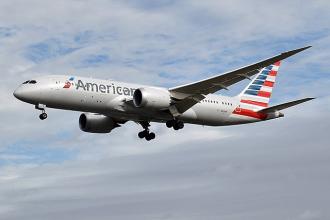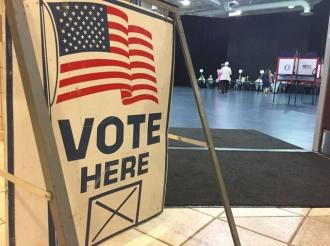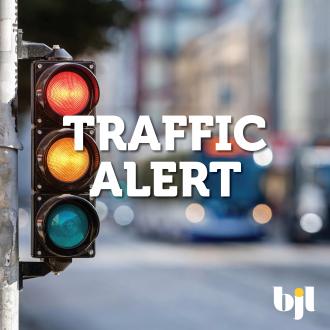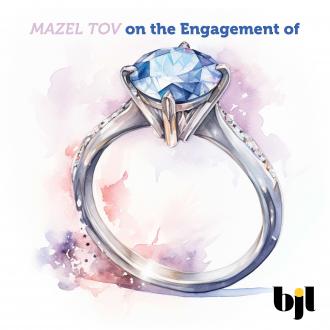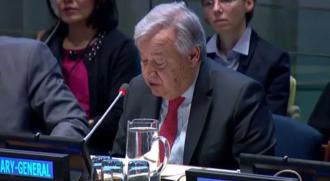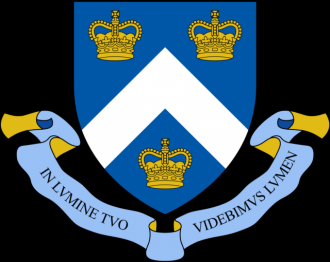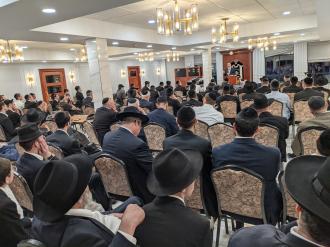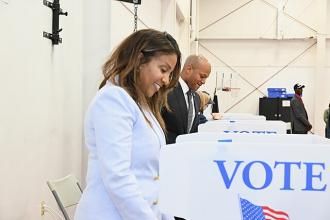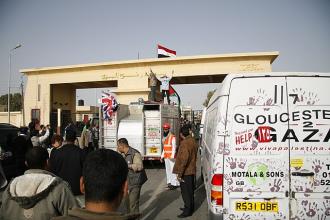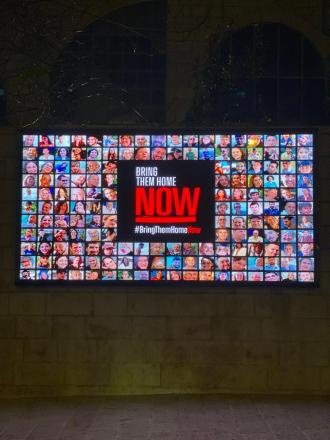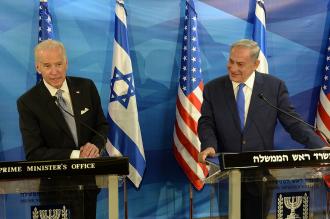The world is in chaos.
The ancient battle between the forces of Yaakov and Esav, continues to rear its ugly head. The world united under the banner of the corrupt philosophy of Esav which seeks instant gratification; freedom from the clutches of morality; entitlement without investment; and a denial of a higher truth embodied within the nation of Israel and its illustrious history, is aflame with growing antisemitism.
We are in the last exile, the Golus of Edom, fighting once again to defeat its archangel — the Satan and its cohorts, as Yaakov did so valiantly early in our history.
We find ourselves positioned between the conclusion of Pesach and the Shabbos of Acharei Mos. In this week's portion we will read of the special service led by the Kohen Gadol on Yom Kippur, where two he-goats are selected: one designated, through the casting of lots, as the one 'to G-d' — a national sin-offering, with the other, the 'one to Azazel' — the bearer of all the people's sins pushed to its death over a cliff in the desert.
Another pair of goats make a historic appearance, according to Pirkei D'Rebbe Eliezer, on Pesach eve when Rivkah plots to usurp the blessings from Esav, having Yaakov disguise himself and present two goats to his father Yitzchok, one serving as the Paschal sacrifice, with the other in the role of the Chagigah offering that accompanies the Pesach.
The Midrash teaches on the verse where Rivkah instructs Yaakov to fetch 'two young goats, טובים — good, choice ones', that it is emphasizing 'they are good for you' — in acquiring the blessing through them, and 'good for your children' — in that they will merit bringing two goats to atone for them on Yom Kippur, one to Hashem and one unto Azazel.
The primacy of Yaakov over Esav is represented in Pesach, where after Yaakov's progeny paid their dues through years of slavery were embraced by G-d when He affirmed "My firstborn son is Israel".
On Yom Kippur, G-d once again upholds our role, even though we may have faltered, by welcoming our sincere repentance, permitting us to symbolically cast off the influence of Esav/Azazel/Satan from the cliff, and accepting 'the goat of Hashem' as a sin-offering bringing us atonement.
We are on a mission to rectify the world by bringing it back to the idyllic existence prior to the sin of Adam and Chavah. It can only be accomplished through the descendants of Yaakov. We will face many challenges in reaching that goal, but we are assured that we eventually will.
Rivkah seems to be the pivotal player in maneuvering events to journey on this trajectory.
Was it merely her guile that is to be admired here or perhaps her determination and self-confidence in risking it all for what she truly believed in?
Where did this confident determination stem from? How does one develop the character to gain such self-assurance?
Amid the Hagaddah, even before we have retold the full story of our exodus from Egypt, we ironically 'sing' the somewhat troubling, but nonetheless moving, piyyut of והיא שעמדה — And 'this' is what kept our fathers and what keeps us surviving. For, not only one arose and tried to destroy us, rather in every generation they try to destroy us, and Hashem saves us from their hands.
There is much discussion about what exactly is 'this' that keeps us surviving despite the incessant attacks of our enemies throughout the generations.
The word for 'this' — והיא, is written in the feminine gender, 'and she' is what kept us.
The Arizal avers that it refers to the שכינה — the Divine Presence, which always looks after us that intercedes on our behalf, time and again, that preserves us.
Rav Yaakov Weiss in his Sefer R'Nu L'Yaakov makes a novel suggestion that the feminine gender here refers to Rivkah Imeinu, who is the 'she' that keeps us surviving. He first quotes the Maharal who teaches that each of the four cups correspond respectively to the Four Matriarchs. The second cup, the one we lift when reciting this piyyut, thus correlates to Rivkah. Additionally, the Zohar states that the Jewish nation owes a great debt of gratitude to Rivkah, for if not for her instigation, Esav would have received the blessings with Yaakov never achieving his primary role.
I would like to take this a step further suggesting that it was 'she', specifically Rivkah, שעמדה — that stood, alluding to prayer which is often referred to as עמידה — standing before G-d in prayer, that continues to protect us from our adversaries.
But it wasn't just any prayer.
The only pair ever depicted as engaged in prayer was Yitzchok and Rivkah. Their names together, יצחק and רבקה, are numerically equivalent to the word for prayer — תפלה, and more specifically שירה — song. (515)
The day Rivkah encourages Yaakov to engage in her plan she coaxes him by relating that on this night the 'storehouses of dew' are opened, and the angels are singing שירה declaring that on this night your children in the future will be redeemed and sing שירה.
Singing to Hashem stems from a deep expression of closeness that erupts spontaneously, indicating an intimate bond between two parties.
Angels explode with song as the natural reaction to their cleaving to the Divine Presence.
Yitzchok is the first to utilize a mode of prayer called שיח. שיחה connotes a unrehearsed conversation between two parties that are close to one another.
When the Torah describes Rivkah upon discovering a conflict within her womb she instinctively says, seemingly to no one in particular, "If so, why am I thus?"
Midrash HaGadol says she was 'conversing with G-d'.
When the verse states "And Hashem said to her" it was a response directly to Rivkah, with G-d continuing the conversation. The Midrash Shocher Tov points out that Rivkah is the only woman G-d 'conversed' with.
Living with an ongoing relationship with G-d, where one senses and is conscious of His presence and closeness, seeing it in every circumstance, creature, and experience, is the ultimate שירת החיים — Song of Life.
The Sefer HaIkarim interprets the dictum 'Whoever recites the Chapters of Shirah every day is truly a בן עולם הבא — is already rooted in the next world', as not simply about reciting the words, but rather depicting one who lives with a consciousness of G-d in every fiber of the world, both in apparent good and the seemingly bad, and sees and appreciates His hand in all.
I recently asked my good friend Reb Nechemia Feldman, to share with me an anecdote from his sedarim as a child. His parents were charming אמאליגער אידען — 'Jews of Yesteryear' and I was hoping to glean a sweet glimpse of that purer unadulterated world.
He thought for a few moments, not recalling anything particularly significant, and then suddenly remarked that yes there was a penetrating moment in the sedarim of his youth, that repeated itself from year to year, that remains ingrained within him forever.
When the family would come to the point of Vehi Sheamda, they would begin singing their traditional version of this piyyut, but when they would get to the point where we recite 'not only one arose and tried to destroy us, rather in every generation they try to destroy us…' , his mother, a survivor, would begin to weep and break into a monologue conversing with Hashem, recalling the tragedies that befell her. She would pose pointed questions to Hashem. She would complain. But throughout the tears she wouldn't wane nor fall apart. It would continue for several minutes as everyone respectfully and in awe gave her space, but without missing a beat she would continue with the last chorus on a high note, ending with an upbeat flourish in the grand finale, …and Hashem saves us from their hands!
The 'song of life' is a symphony, with many different movements: upbeat; sad; suspenseful; dance; joyous; and enthused. They are all connected and comprise a unit that reflects its composer.
As long as we sing without lapses, we will remain close to our Creator and secure in His embrace assured that it will all one day conclude with great flourish!
באהבה,
צבי יהודה טייכמאן

